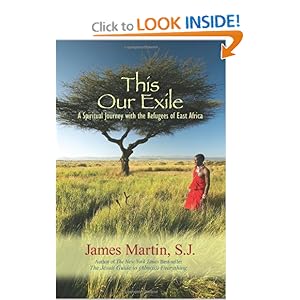Trails of Hope and
Terror: Testimonies on Immigration by Miguel A. De La Torre takes look
at Hispanic immigration in the United States. The book covers a lot of ground
in just around 200 pages.
(From the cover) “Each of the seven sections (Borders,
Economics, Myths, Family Values, the Politics of Fear, Perspectives, and
Ethical Responses) examines an issue and then includes stories or testimonies
by undocumented migrants and those who work with the undocumented. Each chapter
concludes with a poem, prayer, or a song that expresses the hope and the terror
involved in crossing the border. De La Torre’s combination of analysis, story,
and artistic expression opens up the complexities of immigration for
undergraduates and for all Christians.”
De La Torre is a well known ethics professor whose emphasis
lies in doing ethics “from the margins” of society. In this book he walks you
through a lot of facts, figures, political movements and theories. Most
striking to me though were the personal accounts he includes. In my opinion the
testimonies of the book are what make it shine.
As you read the book, if you are unsure about your position
in the immigration debate or what a Christian response to immigration looks
like, De La Torre does not leave you much room to be undecided. (For a more
balanced analysis try starting out with Daniel Carroll’s Christians At The Border that I mentioned previously.) De La Torre
comes off a bit aggressively at times, but, if you stick with it, he will push
you to reexamine some of the ideas you hold.
He asks probing questions like, “What is an appropriate
punishment for being undocumented? Dr. Juan Martinez, dean of Hispanic studies
at Fuller University, says that the crime of the undocumented is breaking and
entering (when it is not overstaying a visa). He asks what we would do with
someone who broke into our home, remodeled our house, took care of our garden,
cleaned our house, took care of our children, and cooked us dinner?” (167)
De La Torre also explores some new movements responding to
the immigration crisis in the United States such as the Sanctuary Movement. A
lot of attention is also paid to the horrible conditions at the border and of
the thousands of human rights violations that take place at our southern border
each year. One example is the repatriation (sending them back "home") of
children. He writes, “Even more heartbreaking is what happens to children of
immigrants. During the first six months of 2008, 18,249 children under the age
of eighteen were repatriated. Of those, 10,000 children were literally dumped,
without any adult supervision, on the Mexican border. To make matters worse, it
is common to repatriate women and children to unfamiliar cities at night after
shelters and other services are no longer available. Abandoned in violent
border towns, they become easy prey.”
You may be a bit put off with the roughness of some of Miguel
De La Torre’s assertions, but these kinds of statistics and the testimonies
within the book are hard to argue with. For those not familiar with the
conditions of the southern border or the current US immigration policies (and
perhaps even for those who are) the book will be eye opening.
While this book is full of important information for all of
us who are thinking through the difficulties of immigration policies,
especially those of us living along the border, this book is even more imperative
for those of us who consider ourselves Christians.
De La Torre writes, “We say we are a nation based on Judeo-Christian
values, yet when some of us attempt to follow the example of the Good
Samaritan, we are harassed by the agents of this so-called Judeo-Christian
nation. Today a “Good Samaritan” can receive up to twenty years in prison for
providing transportation to the closest hospital for a dying immigrant. Is this
the only country in the world in which providing humanitarian aid is a crime?
We can muster our resources to save the whales but not Latinos/as.”
If you are like me, Trails
of Hope and Terror is a book that will push on you.



